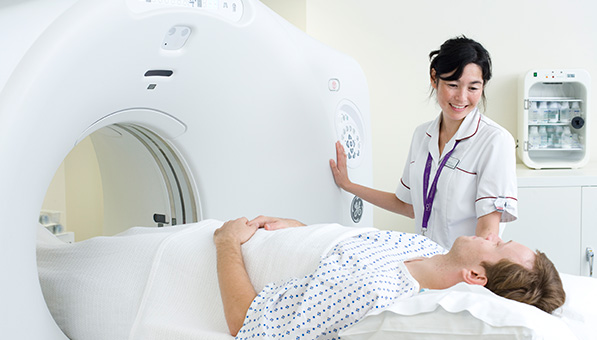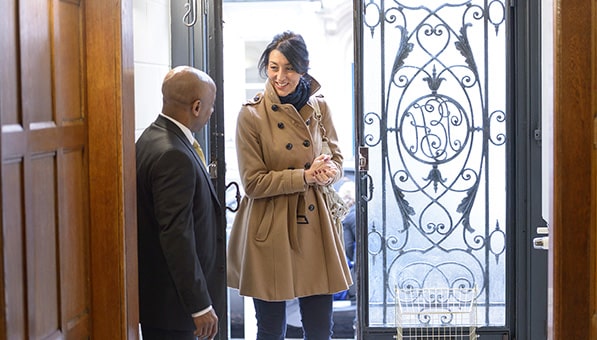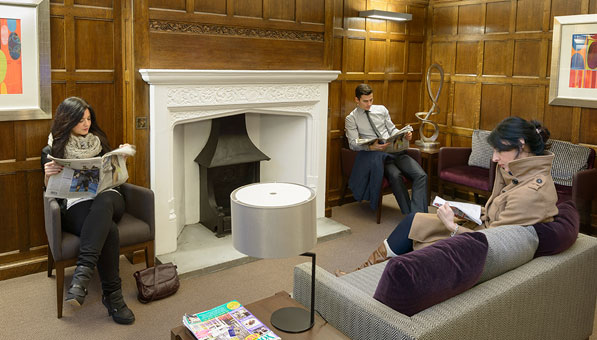Available Rosacea Specialist Treatments
Proven rosacea treatments from private skin specialists
- Our consultant dermatologists have extensive experience in diagnosing and treating rosacea
- Personalised consultations with a leading skin specialist
- All of our treatments are medically proven to provide effective and long-lasting results
What Is Rosacea?
Rosacea is most commonly associated with redness in the face. Fair-skinned people from Northern Europe are most susceptible to rosacea, but it can develop in people of Asian and African descent. Although rosacea affects more women than men, men’s symptoms tend to be more severe. Some people go on to develop rhinophyma, a condition that causes the nose to become red and bulbous.
Facial redness is one of the primary features of rosacea. As the condition develops, the central part of the face becomes a darker shade of red and the skin can feel lumpy. Other symptoms include burning or stinging in the face, dilated blood vessels that are visible and obvious, bumps, spots, pustules, painful swelling and infection in and around the eyes, dryness and sensitivity to light.
Enquire about
Available Rosacea Specialist Treatments
Treating Rosacea
We offer treatments for all forms of rosacea at The Devonshire Clinic.
What to expect from your Rosacea consultation
All consultations are carried out by one of our Consultant Dermatologists at our Harley Street clinic.
- Our Consultants will start by thoroughly assessing your symptoms, taking a medical history and performing a careful examination of your skin. This will help us to identify the type of rosacea you are suffering from and any possible triggers.
- We will then recommend treatments specific to your symptoms and triggers, including any lifestyle or diet changes that may help to manage symptoms going forward.
- All costs will be outlined in detail at every stage, so you will be in control and have the opportunity to ask questions before proceeding.
Recommended Rosacea Treatments
Our skin specialists have extensive experience treating all types of rosacea. The exact treatment recommended will depend on how your rosacea presents, but no matter what stage your rosacea has reached, we can provide an effective treatment that helps to reduce your symptoms.
Topical Treatments
If you’re suffering from papules (red bumps) on the skin, you may be advised to use a topical treatment in the form of a cream or gel. This reduces the appearance of papules and pustules while lessening the redness of the skin.
Oral Antibiotics
Severe forms of rosacea may require a course of oral antibiotics to reduce severe inflammation. A typical course of antibiotics lasts between four and six weeks.
Isotretinoin
Isotretinoin is more typically used to treat acne but has been proven to be effective in reducing symptoms associated with rosacea. It’s effective at reducing papules and pustules on the skin.
Topical Gels
Some gels reduce facial redness by widening the blood vessels under the skin. The effects become apparent after 30 minutes and usually last for 12 hours.
IPL & Laser Treatment
Visible blood vessels, redness and flushing can be reduced by using IPL (intense pulsed light) or vascular laser treatment. The heat from the lasers shrinks the dilated veins, which in turn, reduces their visibility. Usually, two to four treatments are required for there to be a noticeable improvement.
Obagi Skin Rejuvenation
Our range of prescription-strength topical agents that are particularly effective in treating rosacea and providing general skin care. They also work well in conjunction with other treatments.
Obagi Rosaclear
Part of the Obagi-C Rx range, Rosaclear has been specifically formulated to treat rosacea, redness and inflammatory papules.
Frequently Asked Questions Rosacea Treatment
Rosacea is a common, long-term skin condition that mainly affects your face. It causes the skin to
redden, or blush, and it can feel hot and painful too. You might also be more sensitive to cosmetic
products or even when using water on your face. You’re more likely to have rosacea if you’re female
and have fair skin but the condition can also affect men, whose symptoms can be worse.
Rosacea can cause broken blood vessels to appear on your skin, and you may have pinkish spots,
sometimes pus-filled, on your face. Other signs of rosacea include dry, thickened, or swollen skin. It
can affect the area around the eyes, which become light-sensitive.
Although no one knows what causes rosacea, it can be triggered by exposure to the sun, stress,
exercise, heat, or cold. Dietary triggers include hot, caffeinated, or alcoholic drinks and spicy foods.
Rosacea can be treated by avoiding any known triggers. It can be managed through antibiotics and
skin creams such as Obagi skin rejuvenation medication. You might also be offered intense pulsed
light (IPL) and laser treatment. Heat from the lasers shrinks the dilated veins, making them less
visible and reducing the overall redness and tendency to flush. You may need two to four treatments
to show an improvement and regular maintenance treatment thereafter.
Rosacea treatment aims to improve your quality of life by managing your symptoms. The time it
takes to see results varies from person to person, depending on your symptoms and which
treatment you choose. Treatment is usually long-term; in many cases, it can take at least three
months to show results.
Knowing your triggers can help you adjust your diet to minimise any flare-ups of your rosacea.
Common dietary triggers include alcohol, caffeine, and spicy foods.
Rosacea can’t be cured, and doesn’t go away on its own, but your symptoms may vary. Sometimes,
you might get severe symptoms for a few weeks, then they fade away for a while before returning.
Rosacea can’t be prevented, but you can avoid your triggers, which helps reduce the likelihood of a
flare-up. You can, for example, wear a high SPF sunscreen and a hat on sunny days, reduce your
stress, avoid overheating, and cut back on alcohol, caffeine, and spicy foods if these trigger your
rosacea.
Although there isn’t a cure for rosacea, several treatments can control your symptoms. Treatment is
likely to be long-term, although there may be times when your skin improves, and you can stop
treatment for a while.
Wearing makeup can improve how your skin looks, helping to boost your self-confidence. Some
ingredients are more likely to aggravate your skin but using a green-tinted base can help to correct
any redness. Make sure it has good UVA and UVB protection. When choosing foundation and
concealer, opt for gentle, antibacterial, and oil-free formulas when possible, and it can help to use
an antibacterial foundation brush rather than a sponge, which can be harsher on the skin.
Some people find natural treatments – creams and food supplements – can help with rosacea
symptoms. Creams and lotions containing aloe vera, chamomile, coconut oil, comfrey, feverfew,
lavender, oatmeal, raw honey, and tea tree oil are sometimes used on the skin. People also take
supplements containing turmeric, niacinamide (a B vitamin), green tea, and burdock.
Available Rosacea Speacialist Treatments
Intense Pulsed Light (IPL) Laser Treatment, Harley Street, London
At The Devonshire Clinic we use intense pulsed light (IPL) treatments to treat skin problems ranging from medical c[...]
Read MoreFractional Laser Skin Treatments, Harley Street, London
Laser treatments have been used in cosmetic dermatology for many years. The principle is that the energy from a car[...]
Read MoreOBAGI Nu Derm Treatment in Harley Street, London
The Obagi range of skincare products is a highly formulated, prescription-strength and physician-dispensed portfoli[...]
Read MoreWhy use the Devonshire Clinic?
Whatever stage your rosacea is at, we can help. We are a team of leading skin Consultants based in The Harley Street Diagnostic Centre in London. Genuine, fully accredited experts with extensive experience, we can provide you with a quick and accurate diagnosis and recommend effective treatments that really work.
As one of the most advanced private skin clinics in London, we can help you bring your rosacea symptoms under control. Simply get in contact today.


